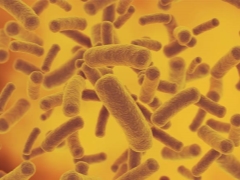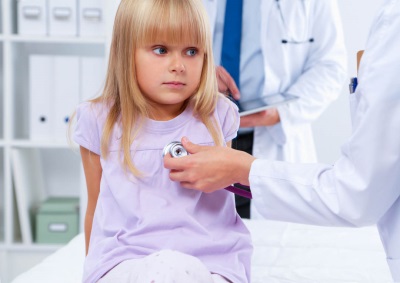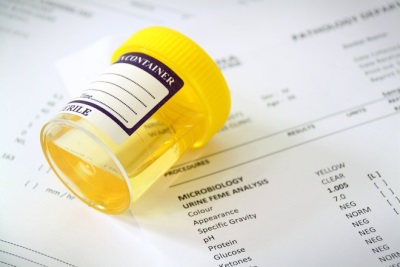Bacteria in the urine (bacteriuria) in a child
If a baby’s urine test revealed bacteria, it’s too early to panic, because the reason for such an indicator could be violations of the collection of the sample for analysis. What does microorganism detection in children's urine, which is called bacteriuria, indicate? What should parents do if a large number of germs are detected in the baby's urine?
Symptoms of bacteriuria
Signs that may accompany the excretion of bacteria in the urine:
- Pain over pubis. They are usually aching, and when pressed in this area are amplified, which is characteristic of cystitis, but they are also acute.
- Frequent urination.
- Modified urine color.
- Delay urination.
- Temperature rise.
- Drowsiness, loss of appetite and other symptoms of intoxication.
- Urinary incontinence.
- Pallor of the skin.
- Pain or burning during urination.
- Turbidity of urine.
- The appearance in the urine of protein, leukocytes, mucus.
What is it?
Microorganisms are present in the body of the child in the norm, however, some of them are completely harmless, while others can cause infection with a weakened immune system. An increased amount of bacteria in the urine excreted by the baby helps to identify urinalysis. If more than 100 units of bacteria were detected in 1 ml of the test material, this condition already refers to bacteriuria.
Can bacteria be absent in the general analysis of urine, and present in the sowing?
This may indeed be the case, since sowing is a more accurate study. This analysis involves placing the urine sample on the nutrient medium, and in a clinical analysis, the bacteria may not be detected in the field of view of the microscope.
Identification of microbes during seeding in an amount greater than 105 units per milliliter of urine confirms infection of the organs of the excretory system.
Norm
In the urine of healthy children always get a small amount of microorganisms present in the urethra and bladder. But in the ureters and kidneys, bacteria usually do not exist. It is the constant presence of non-pathogenic, conditionally pathogenic and pathogenic microbes that causes the appearance of inflammation during hypothermia, injury or weakened immunity.
In infants up to a year
It is worth noting that bacteria in pediatric urine are always less than in adults - up to 6 years of age, excretion of bacteria in the urine is an extremely rare symptom and usually indicates a disease. However, in infants bacteriuria is possible, since it may not be easy to collect urine for analysis with compliance with sterility at this age. For more reliable results, collection is recommended to be carried out in special urinals, and urine should be brought to the study within 2 hours after it.
Difficulties may also arise from the fact that the symptoms characteristic of bacteriuria (anxiety, reduced appetite, high fever, lethargy, and others) are found in infants and in many other diseases. That is why all babies with suspected illness should be prescribed a blood test and urine test.
Possible reasons
Most often, bacteriuria in a child is caused by inflammatory diseases of the urinary tract - urethritis, cystitis, pyelonephritis, and others. Poor hygiene, overcooling, bathing in polluted water and other factors can lead to their appearance.
Another possible cause of bacteriuria is poorly collected material for analysis, when bacteria from the anal region or genital organs of a child enters a urine sample.
Opinion E. Komarovsky
The well-known pediatrician advises parents to use special urine bags purchased at the pharmacy for urine collection. This will avoid false results.
Komarovsky also captures the attention of parents that the treatment of infectious lesions of the urinary tract is long. If after a few days of taking the antibiotic, the child's condition has improved significantly, and the analysis has become good, you cannot stop using the medication. In this case, bacteria will remain in the body of the crumb, which will eventually cause inflammation, but will now be resistant to the drug used.
What to do?
First of all, if the baby has been identified bacteria in the urine analysis, the doctor will necessarily give direction to re-study. In this case, parents should make sure that the urine was collected in a sterile container, and before collecting the child's genitals were well washed. If the retake analysis confirmed bacteriuria, the doctor will prescribe the baby additional methods of examination, among which will be Nechiporenko analysis, Kidney ultrasound, blood test, urine sowing tank.
Treatment
Based on the examination of the baby and the results of the tests, the doctor selects the necessary treatment in a specific situation. Parents should not give the child anti-inflammatory, antimicrobial and other drugs until the diagnosis is clarified. A pediatrician or urologist will prescribe a suitable antibiotic and other necessary medicines to the child. Parents can be given a crumb only drug group antispasmodics.

Prevention
Urinary tract infections often appear when hygiene is not followed. For example, washing of girls should be carried out only from the vagina in the direction of the anal area. Similarly, you need to wipe the child with a paper or napkin after a bowel movement. This will prevent microbes from entering the baby’s genitals from the intestines, from where they can easily get into the urethra and up through the urinary tract.
In adolescence, hypothermia is a common cause of inflammation of the urethra, bladder, and other parts of the excretory system. Children tend to follow the fashion and often dress not according to the weather, and if the weather is not hot, a bare stomach can cause colds and inflammations. In addition, in adolescents, sex can be the cause of urinary tract infection.
Another measure of prevention of diseases of the urinary system is a regular examination of the urine, because quite often infections occur without any warning signs. The child may also not be able to explain his feelings or shy. That is why a complete urinalysis once a year is recommended for all children.












